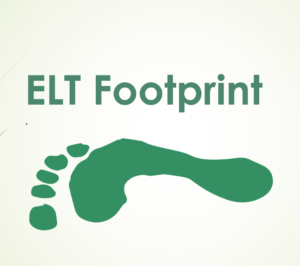Is the future perfect?
An online festival of English language teaching, recorded across three days, looking at today’s teaching to create a better tomorrow

Day 2: Shifts in language – what are we teaching and how?
Day 3: Shifts in techniques – how are we teaching and why?
Description: The world of English language teaching has changed and is continuing to change but have our teaching practices kept pace?
Throughout all the turmoil of the pandemic and changing political and economic climates of late, how often do teachers give themselves a moment to stop and reflect on what’s been happening in the teaching world at large? Do they stop to consider what’s changed in their teaching practice? And, can they definitely say they are using the best techniques and activities available to fit their current teaching context and the way they are delivering classes?
This online festival of English language teaching aims to provide answers to these questions and much more besides. The first day looks at the type of people we are teaching, and how the age range and profile has changed before moving on to consider the way the classes are being delivered and through what medium, and seeing which modes of delivery are going to stick moving forwards. The second day moves on to look at the type of language being taught nowadays, such as the use of emergent language and ways to integrate authentic listening and spoken grammar, and how to most effectively use them in class. The third day rounds off our festival by considering what shifts there have been in the way we are teaching now, how techniques are changing in light of evidence-based teaching and student expectations, and how we can continue to grow and change as we adapt to the teaching of tomorrow.
Throughout all the recordings, we will have celebrated the successes of change and creativity in global language teaching, teaching methods and techniques, understood more about who we are teaching and where ELT is headed and discussed what we need to do to be effective teachers of tomorrow.
Format: Webinar recordings, with ac companying chat logs and addition resources
Sponsors: The Centre for Language and Linguistics, Canterbury Christ Church University; DELTA Publishing; The Bournemouth English Book Centre; ELT Footprint
Price:
£10 – administration fee. The administration fee covers access to all the recordings from the three-day online, interactive festival, a CPD certificate of attendance, any support material and resources from the talks, and access to exclusive discounts.
The programme…
Day 1: Shifts in teaching – who are we teaching to and how?
“… but I don’t wanna teach kids!”, with Chris Roland. In this interactive talk, Chris Roland will talk about the adjustments needed when teachers begin working with a new level or age range as well as the strengths that teachers of each echelon – adults, teens and little children – can bring with them when teaching out of their comfort zone. Chris, himself an ‘all-terrain teacher’, will highlight the challenges involved in each transition and champion the robustness of teachers who work with all levels and all age ranges.
Getting out of our brains: distributed cognition in ELT, with Sarn Rich, sponsored by the Centre for Language & Linguistics, Canterbury Christ Church University. Distributed/extended cognition is a way to understand thinking and learning as spreading dynamically through our bodies, through objects, through interactions with other people and with the wider environment. We will look at practical ways to apply these ideas in ELT for more effective language learning, finishing with a distributed-cognition escape-room activity that demands shared problem solving, teamwork and communication.
All for one, and one for all, with Fiona Mauchline. ‘Inclusion’, ‘diversity’ and ‘representation’ are all words and important concepts we have heard a lot about in the past few years, but what do they mean for teachers? How do they work in practice? In this session, we’ll look at both a few ideas that will help you implement these concepts in your day-to-day teaching, and at how you can add your voice to ‘the bigger picture’.
Day 2: Shifts in language – what are we teaching and how?
A fresh, practical approach to teaching authentic second language listening, with Sheila Thorn. In this interactive talk, Sheila will explore a new, goal-focused approach to teaching second language listening using authentic recordings. By the end of this session, participants will have more confidence in using authentic recordings in the classroom and their learners will improve their language knowledge and use as a result.
Learning to Teach Listening: Do’s, Don’ts and Technology for Engaging Listening Activities, with Chiara Bruzzano (LanguageEd). “Teacher, they speak too fast!”; “I didn’t understand anything”; “that accent is too difficult!”: Do these sound familiar? If your students are struggling with listening, then come along to Chiara’s interactive session, where she will give you some guidelines for designing effective listening activities and demonstrate how to use some simple tech tools to make your listening more engaging and interactive.
Naturally smart: Integrating AI into your English lessons, with Rubens Heredia. It seems that everyone is talking about AI, right? Some see it as a sign of the end of teaching, some as a once-in-a-lifetime opportunity. But how concerned should we really be? And how can we take advantage of the AI tools even if we’re not the most tech-savvy teachers? In this interactive talk, we will look at the possible impact of AI in ELT and discover practical ways to integrate it into our lessons.
Tips and techniques for working with emergent language, with Danny Norrington-Davies and Richard Chinn. Dealing with learner language that arises in a lesson is a natural part of learning in class, and this is called ‘emergent language’. Although a well-known term in English language teaching, there has been little concrete advice for teachers on how to effectively work with emergent language in class. In this interactive talk Danny & Richard will explore ways you can develop your ability to notice and respond to emergent language in your classes.
Day 3: Shifts in techniques – how are we teaching and why?
ELT and ecoliteracy: sowing the seeds for sustainability, with Ceri Jones. No one can do everything, but everyone can do something. And that’s our starting point. In this interactive talk we will explore why we should, and how we can, foster the growth of ecoliteracy in the English language classroom. We’ll discuss practical solutions, exploring some of the actions proposed by the ELT Footprint community, and examine a simple, flexible framework which allows teachers to integrate ecoliteracy in their language-focused classes.
Reflecting key shifts in our pronunciation teaching, with John Hughes. Over the last thirty years, there have been three key shifts affecting pronunciation teaching: the impact of English as a lingua franca, the demand for online teaching, and the belief that pronunciation should be integrated, rather than treated separately. In this interactive talk, we’ll explore each ‘shift’ and try out practical activities which reflect their impact.
The brain, gender and language, with Carol Lethaby. What do we know about the brain, gender and language teaching? This session will look first at some of the widely held beliefs and myths about female and male use of language. Carol will then consider the complex connections between biology, and the environment and contemplate the nature versus nurture debate as well as the notion of neuroplasticity. Finally, we will look at what this all means for language teaching to children and to adults.
We are delighted to welcome our sponsors:







